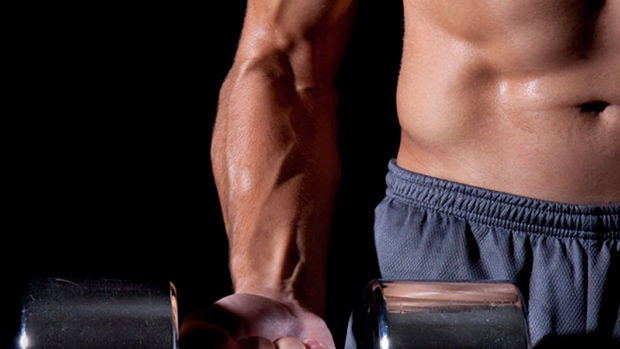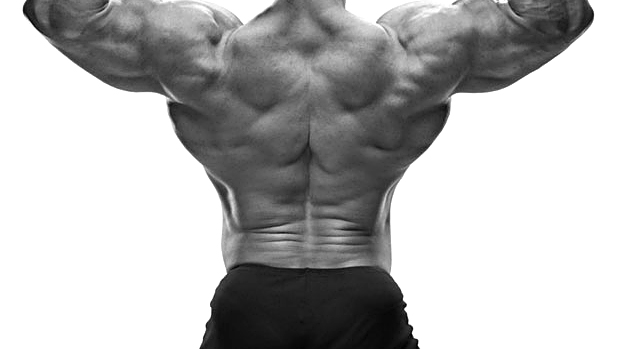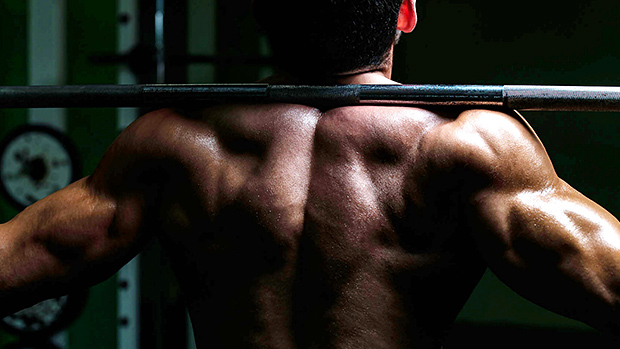Here's what you need to know...
- Most of us are horribly dysfunctional when it comes to breathing. Our poor breathing patterns drive us into a state of constant inhalation, which prevents us from getting the most from our ab exercises.
- Master the fully exhaled posture. This is the posture you must be able to assume at the start of your core exercises.
- The exercises may not look challenging at first, but if you perform them exactly as outlined, they'll be tougher than you can imagine.
When there's a problem that leads to poor posture and sub-optimal performance, it only makes sense to deal with it head on. However, this isn't another ho-hum posture article. We're going to talk about why your posture got so damn messed up to begin with, and then offer up a few key exercises to finally get you on the road to having both wellness and great abs.
It Begins With Breathing
Breathing is the most critical thing we do every day. (Big revelation, right?) Unfortunately, most of us are horribly dysfunctional when it comes to breathing. Our poor breathing patterns drive us into a state of constant inhalation (i.e., hyperextension, hyperlordosis, scissored posture, or whatever you want to call it), and we can't get out of it.
This is why all of those cool and sexy core training exercises you've probably tried don't work as well as they should. You've never been in the right starting position. To remedy this, we need to work on the way you exhale. Not exhale some, not exhale a lot, but exhale fully.
In other words, I want you to exhale hard and keep exhaling. Purse your lips and keep going until your abs shake. When you can't get any more air out, that's when you've exhaled fully.
It'll feel awkward at first. All your body will want to do is take in another breath. The thing is, if you can get comfortable in this position, it's going to make a huge difference in your posture and starting position for core training exercises.
Now, your abs may look great, but those deep core muscles aren't on board with your program. If you can get the deep muscles to function as well as the muscles on the outside look, you'll be a double-threat.
Once you've dialed this fully exhaled posture in, then it's time to move on to some awesome core-training exercises.
Deceptively Hard Core Training
I love exercises like ab wheel rollouts, band jackknifes, and all the other moves that make you look like a boss in the gym. Unfortunately, we're often letting our ego get ahead of us. If you can't totally dominate an exercise, you should probably think about regressing.
Most people struggle mightily just to exhale, so it makes no sense to start out with advanced core training exercises. Instead, work the exhale and start with core training exercises that give you more external support and stability.
I'm a huge fan of supine core training exercises initially, as they let you challenge your core but still allow you to be successful. As you get stronger and more confident, you can move on to more challenging progressions.
The exercises below may not look challenging at first, but I guarantee if you give them a fair shot and perform them exactly as outlined, they'll be far more challenging than you can imagine.
1. Band Leg Lowering
The band leg lowering is our first exercise and possibly my favorite. Ask any of my athletes – if they struggle with core and lumbo-pelvic stability, they're getting a heavy dose of this exercise for the first month or two.
Use a band to hold one leg up in the air. To get into the appropriate position, think about pulling the toes back towards the face (both with the band and actively), and flex the quad to extend the knee. Think of this as "getting into the quads." It should give you a nice little stretch on the back side of that leg.
From there, take the "free" leg and try to reproduce the same position. Actively pull the toes down and flex the quad to extend the knee. Once in this position, exhale fully. Try to flatten the lower back into the ground and keep it there.
With the back flat, lower the free leg slowly towards the ground. I like to use either a three-second or five-second eccentric when lowering.
Last but not least, as you lower you need to focus on three things:
- Keep the toes pulled up.
- Actively extend the knee.
- Keep that low back flat to the floor throughout.
Start with 3 sets of 6-8 repetitions, and use a 301 or 501 tempo for maximal abdominal domination.
2. Core Engaged Dead Bugs
The core engaged dead bug is another fantastic core exercise. I like core engaged variations using a band because people immediately "feel" their abs, which helps them buy into an exercise.
Wrap a band around a power rack (or similar stationary object), and lie down with your head a few inches away from the rig. Flex your knees and hips while simultaneously pulling the band out so that it's at approximately chest level. Exhale fully and attempt to flatten your lower back to the ground.
Once in this position, think about pushing through the heel of one leg to straighten it. At the midpoint you should be pressing through your heel, with the toes pulled back towards your face and the knee extended/quad flexed. The stronger and more stable your core is, the lower you'll be able to drop your leg towards the ground. Keep in mind, you don't want to touch the ground with your heel, and at no point do you want your back to arch or extend off the ground.
Not evil enough? Try this subtle tweak: As you're extending one leg, think about subtly flexing the opposite hip. It doesn't even have to move – just think about activating your hip flexor on the non-moving side.
It doesn't sound like much, but this little change can make a big difference in how the movement feels.
3. Wall Press Abs
When I show people how to do Core Engaged Dead Bugs (exercise #2), they usually respond with the following complaint:
"Yo Mike, I don't have a band, bro. What can I do instead?"
While it's not a perfect tradeoff, wall press abs are a similar exercise that you can perform without buying a band. The setup is similar to the dead bug, with the exception being you're going to lie down next to a wall versus a squat rack.
Extend your arms overhead slightly so that you're pressing hard into the wall. Now exhale fully and press your lower back into the ground. From here, the exercise is virtually identical to the dead bug. Push through the heel, pull the toes back, extend the knee at the midpoint, and don't allow the back to extend or come off the ground at any point.
I typically start with 3 sets of 6-8 repetitions and a 301 tempo to ensure they're controlling the eccentric.
4. 3-Month Position PNF
The 3-month position PNF is another big-bang core exercise. I love this variation because you not only smoke your core, you get the added benefit of some serratus development on the "up" arm side along with some lower trap development on the "moving" arm side.
Lie on the ground with the hips and knees flexed to 90 degrees and your feet in the air. Next, raise both arms towards the ceiling until you feel a slight stretch in between the shoulder blades. Keep reaching up with the left arm, then take your right hand and move it towards your left knee while simultaneously pronating the lower arm (point the palm down).
From this position, reverse the motion and take your right arm up towards the 10 o'clock position while simultaneously supinating the lower arm (open the palm up). Repeat for the allotted number of repetitions and then switch sides.
While this exercise looks pretty easy, the devil is in the details:
- Exhale fully and keep the back flat throughout.
- Always think about reaching with the "up" arm. I like to envision that I'm holding the ceiling up.
- On the "moving" arm side, think about reaching long. I don't care if your thumb actually touches the ground – instead, think about getting your arm as far away from your body as possible.
- One final cue – think about having a point on the palm of your "up" hand and a point on the tip of your middle finger on the moving hand. Your goal is to get these two points as far away from each other as possible. In other words, you've got to reach and get long with both arms the entire time!
I'll typically started with 3 sets of 6-8 reps on this exercise, and I don't prescribe a tempo as long as the movement is controlled.
5. 3-Month Position Pullover
The lats look awesome if well developed, but they can be problematic if too stiff or not counterbalanced by a strong set of abdominals.
Quick functional anatomy tip: The lats come down from the inside of your upper arm and connect to your scapula, pelvis, and thoraco-lumbar fascia. If they're stiff, they'll pull you into an anterior pelvic tilt and affect your posture, alignment, and movement.
This is where the 3-month position pullover comes into play – it's one part core/abdominal exercise, one part lat inhibition. Lie on your back with your hips and knees flexed to 90 degrees and a kettlebell (or dumbbell) supported by both arms overhead. Exhale fully and press the lower back into the ground.
From this position, lower the kettlebell slowly while keeping the back pressed down. Go as far as you can without allowing any extension through the back and then return to the starting position.
I'll start with 3 sets of 6-8 reps again, and you can perform the tempo in one of two ways:
- Use a 301 or 501 tempo to really focus on controlling the eccentric and feeling the movement, or...
- Use a 151 tempo and focus on maximally controlling extension through the core and lumbar spine.
Ab-dendum
Everyone loves to crush it in the gym but sometimes we need to get our ego in check and go back to basics. These exercises may not look as bad ass an ab wheel rollout or bodysaw, but chances are they can give you better results, especially if you're not proficient at them.





